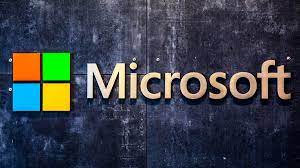Course information
MCSE COURSE ONLINE: MCSE, known as Microsoft Certified Solutions Expert, is a popular certification path from Microsoft for professionals across various industry sectors. There are many aspects of specialization that a certification training course in MCSE focuses on, such as SQL Servers, Sharepoint, Exchange Servers, Windows Server, Office 365, and System Centre. Those who are MCSE certified professionals become a part of the global Microsoft community and have the opportunity to participate in various Microsoft events, training sessions, conferences and more. An MCSE certification is a recognized certification that can open up multiple doors that can help working professionals advance their careers.
Microsoft Technology is widely used across industries and around the world. This is where an MCSE certification can prove to be of great help. A lot of hiring managers and recruiters are always on the lookout for IT professionals and system engineers who can work with Microsoft tools to optimize their existing Microsoft solutions, or to deploy or administer new ones in the organization. Microsoft is a widely used tool and companies are always looking for employees who can easily and successfully manage their complex systems
With LEO SOFT IT classes live instructor-led sessions, you will be able to master various aspects of Microsoft Servers and implement, Manage, Create, Deploy and Troubleshoot them.
You will learn skills like Active Directory, DNS, NTFS Permission, Group Policy, Site Subnets, Replication, Child Domain, Forest, Trusts, DFS, DHCP, FTP, IIS, Failover Cluster and much more. You will get the hands-on experience to create highly scalable, highly available, fault-tolerant design. Learn from top-rated mentors to become MCSE.
This MCSE / MCSA Training Program will help you learn skills such as how to Install, Configure, Manage, Troubleshoot Microsoft Servers and you would be getting
Overview:
MCSE (Microsoft Certified System Engineer) is an individual who has successfully passed exams dealing with the Microsoft Windows NT, 2000, 2003 XP, or later Microsoft operating system, networking, and Microsoft BackOffice server products. It is a widely recognized certification Program. According to the Organizations, the certification process is appropriate for systems engineers, systems analysts, technical support engineers, network analysts, and technical consultants.
Training Objectives of MCSE:
MCSE is the top level certification for the IT Oriented network professionals. It’s aimed for the IT professionals with a working knowledge of the Microsoft Windows and Server 2003 platform. This is made up with seven MCP certifications, and this certification qualifies you to administer and design complex networks on the Microsoft platform plus support desktop PC’s running Windows XP Professional, servers using Windows Server 2003 and includes a specialization that covers subjects such as Exchange Server 2003, SQL database and security.
Target Students and Prerequisites:
Students must have experience in setting up Hardware and administering network systems.
IMPLEMENTING MS WINDOWS 2003 NETWORK, PROFESSIONAL & SERVER (70-290) & (70-270)
Introduction to various types of file system.
Introduction to Windows 2003 network, XP-professional.
Administration of windows 2003network
Examine the network scope of Windows 2003 server
Introduction to LAN & WAN.
Networking topologies.
Examining to IP address (Class A, Class B, Class C)
OSI Reference Model
Connecting Windows 2003 server & XP professional in workgroup& Domain architecture
Creating &managing Local Users & Groups
Configuration of Printers (a) Local Printers (b) Network Printer
Configuration of Raid levels (Raid level 0,1&5)
Ensure file security through Encrypting file system (EFS)
IMPLEMENTING & ADMINISTERING MS WINDOWS 2003 DIRECTORY SERVICES (70-294)
Introduction to Active Directory Services (ADS)
Configuration of Active Directory Services by using DCPROMO
Implementing of Active Directory with DNS
Creation of Domain Users
Implementing Group Policies
Creation of Organizational Units
Moving Domain Users into other Organizational Units
Configuration of software Deployment using Adminpack (Group Policy)
Configuration of delegating administrative controls
Configuration of Distributed File System (DFS)
Creating Multiple links in DFS
Mapping Network Drive to access DFS from client
Configuration of Terminal Services at server side
Configuration of Remote Desktop using Terminal Services
Introduction to Trees & Forest
Introduction to Domain & Domain
IMPLEMENTING & ADMINISTERING, MS WINDOWS 2003 NETWORK INFRASTRUCTURE & DESIGNING (70-291)&(70-293) DISK QUOTAS
Introduction to Disk Quotas
Applying Disk Quotas
Setting Default limits
Deleting user’s Quota Entries
Applying log events
Tracking Disk Space Users
Adding new quota Entries
Denying disk space to user DNS Installing
DNS
Servers Integration of DNS with ADS
Configuring a new Primary server
Managing Forward lookup zone
Managing Reverse lookup zone
Adding records in zones
Creating Associated Pointer Records in zones
DHCP
Installing DHCP
Creating Scopes
Configuring DHCP clients
Configuration of address Pool
Configuration of address lease
Updating DHCP statistics
Assigning exclusion range from a scope
Assigning Reservation for Particular client
Installing IIS
Configuration of IIS for websites Configuration of ICS (Internet Connection Sharing)
DESIGN A MICROSOFT WINDOWS 2003 SERVER ACTIVE DIRECTORY SERVICES & NETWORK INFRASTRUCTURE Enabling Routing & Remote Access
Introduction to RAS (or) PPP Server
Configuration of RAS Server
Configuration of RAS Client
Assigning Permission for RAS users
Introduction to NAT Server
Introduction to VPN Server
Establishing a VPN Tunnel between two Networks
Configuration of VPN Clients
Introduction to tree & Forest
Introduction to Additional Domain Controller
Planning & Configuration of Additional Domain Controller
Introduction to Child Domain Controller
Configuration of Child Domain Controllers
Removing Child Domain Controller
Introduction to ADS Backups
Introduction to tree & Forest
Planning & Configuration of ADS
Restoring ADS backup in ADS restore mode
Restoring ADS backup in normal mode
MS EXCHANGE 2003 SERVER & ADV. EXCHANGE 2003 SERVER (70 – 284)
Introduction to Microsoft exchange 2003 server
MAPI clients, LDAP standards
Public folders
Pre-Installation consideration(HW/SW Requirements)
Post-Installation Consideration
Managing Storage Groups
Creating a storage group
Creating a store(both mailbox & public store)
Moving a Mail Box
Deleting Mail Box, Public folder, Storage group
Retaining Deleted Objects
Public Folders
Understanding Public Folders
Managing Public Folders Trees
Creating & Deleting Public Folders
Exchange Internet protocol server & virtual services
SMTP, POP3, IMAP4, NNTP
Course information
- Course: MCSE COURSE ONLINE
- Company: ArchiTech IT
- Course Content: Available
- Course Duration: 40-45 Days
- Session Recording: Lifetime Access
 ArchiTech IT
ArchiTech IT